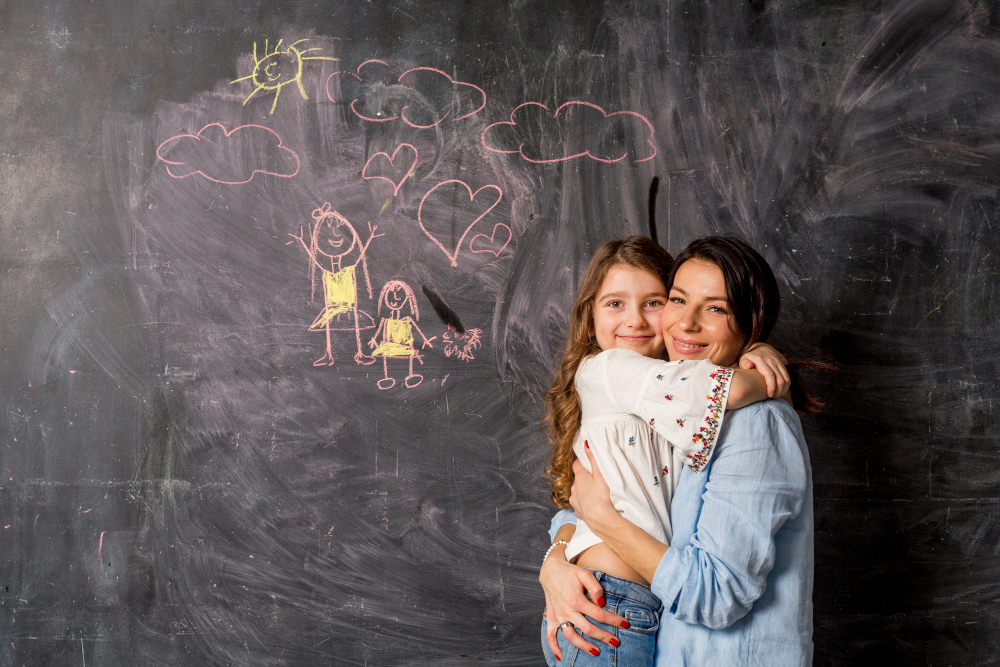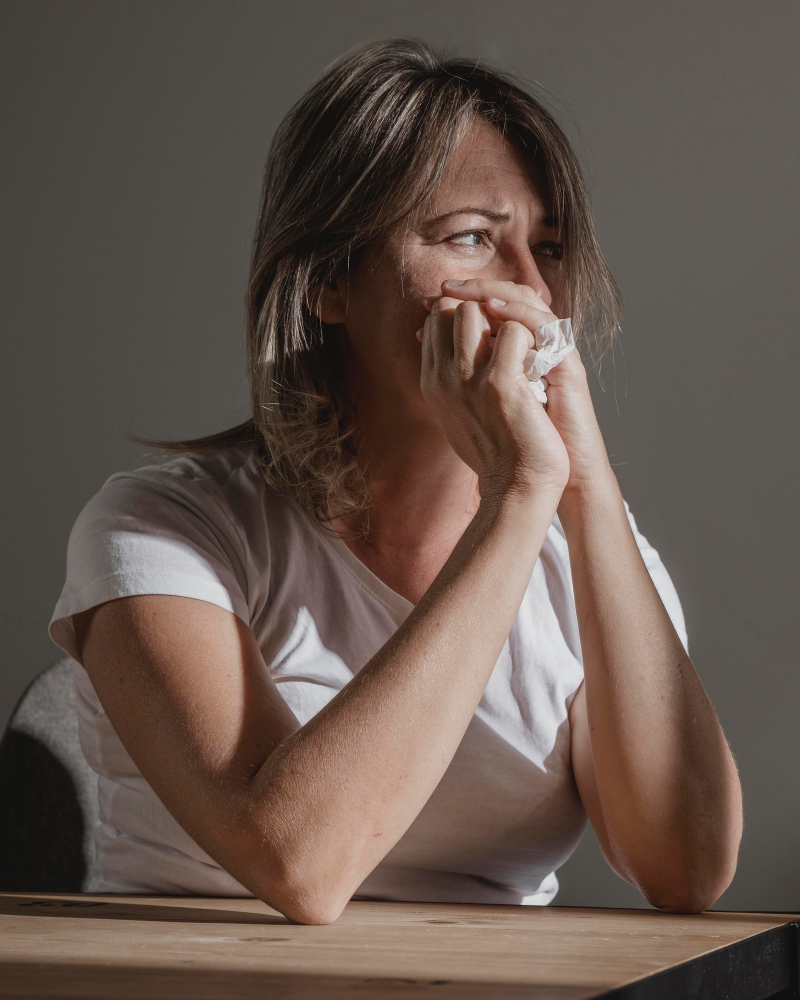On grief, jealousy, and the unbearable pressure to say things just right.
One raw sentence
When one mother said, “It must be easy to have a child who fits neatly into the system,” I could feel the collective flinch ripple across the internet. The pitchforks always show up eventually: not just disabled children are being harmed by the school system, they’ll say, and clearly that is true.
I understood the reaction—honestly. I even felt it myself for a second, that tightening in the chest, that almost knee-jerk pushback, parenting is hard for everyone, because it is, and I don’t want to deny that. But then I took a breath and thought, maybe we need to let people say what they feel—emotions aren’t wrong. Let’s make room for that!
The cost of curating our grief
Advocacy shouldn’t require perfect tone, and expecting it to—especially from disabled people and caregivers of disabled children—is another kind of impossible standard, another exhausting performance, another gatekeeping mechanism that asks us to contort our grief into something strategic before it’s allowed to be heard, as though the people most worn down by the system should also be the most careful not to ruffle its defenders.
We are taught very early that there are sanctioned ways to express our pain: polite ways, useful ways, framed-within-systemic-context ways, and then there is everything else—the envy, the rage, the bitterness, the bone-deep ache that settles into your body when you’ve spent another year begging someone to please just see your child, and maybe even like them while they’re at it.
Tone won’t save us
I’ve been told so many times that if we just say things the right way, if we keep our anger tidy and our grief marketable, we’ll win people over, we’ll get the supports, we’ll make progress, but I’ve been doing this long enough to know that oppression doesn’t dissolve under gentle language, and tone policing isn’t about building bridges, it’s about controlling who gets to speak, and when, and how broken they’re allowed to sound when they do.
You’ve got problems I’d like to have
And I suppose that’s why that line, “It must be easy,” has lingered. Grief needs somewhere to land, and maybe it’s not even about ease at all, maybe it’s about watching someone else experience a form of struggle you were supposed to get too, and feeling like you missed a whole category of ordinary suffering that you would have been really, really good at. I aced math! I’d be excellent at helping with homework.
What I never got to do
When my friend said how hard it was to help her daughter with homework—and I know she didn’t mean anything by it—it felt like a crack splitting down the middle of my chest, because I’ve always wanted to be asked to help with homework, I’ve always wanted to be invited into that small, intimate world of shared pencils and equations and forgotten reading logs, and I have never, even once, had that experience with either of my children. My child has had the same IEP goal for five years—self-regulation—and has spent most of those years locked in an adversarial relationship with the very people who are supposed to teach him.
He refuses to do the assignments and when the report cards come home, I know they’re fiction, because there’s no work to assess, the grades are guesswork, and I have no other parents I can call to triangulate the tasks or clarify the expectations, there’s no gentle network of moms in the group chat, because my child is excluded from the trip, left off the club list, uninvited from the group.
What survival looks like at home
Instead, I’m at home, helping him take his pills and brush his teeth, because even though he knows how, he is so neurologically depleted from years of surviving at school that he can’t manage the most basic hygiene routines. And there’s my friend, who still wipes her daughter’s bum at eight years old, even though she’s toilet trained, because after six hours of masking and overstimulation and trying to survive socially, that child has nothing left, and her mother, like me, has learned that parenting isn’t about milestones or memories, it’s about preserving dignity in the wreckage.
Yes, I am jealous
I suppose I am jealous, and I’m not afraid of that word, because I am envious, and I wish I had your problems, I wish I got to complain about homework or forgotten assignments or the stress of last-minute emails asking if anyone knows what the math sheet was, and I’m not saying your life is easy, I’m saying you have problems I’d like to have, and if that infuriates you—if it makes you feel accused or misrepresented—I think maybe you’ve missed the point.
Pain is not a competition
I know we’re not meant to compare pain: your hardest day might seem manageable to me, just as mine might seem unimaginable to you, and that’s fine, that’s human. Pain isn’t a competition, but it is unequally distributed, and it’s shaped by systems that pretend to be neutral while making some families feel ordinary and others pay an unbearable price.
Let me say it out loud
If I ever said out loud that your life looked easier than mine, I know you’d come back with your pitchfork full of proof—that your child struggles too, that you’ve been up late and worried and overwhelmed and alone—and I wouldn’t argue with you, I would believe you.
Could you maybe believe me that I’m still jealous?
I would still grieve what I never got to do and still want the version of hard that comes with a worksheet. I would still want to know what it feels like to be asked to help, and I would still want space to say that out loud without being accused of harming the movement.
Unmasking hurts before it heals
I’ve spent most of my life editing myself for other people—trying to say it in the right tone, the right format, with the right amount of softness, so I wouldn’t make anyone uncomfortable. So I wouldn’t sound too smart, too confrontational, or not neurotypical enough. I always when back and added “how are you today” and “I hope your kiddos are doing well” before my letter. That’s what masking taught me to do: shape every sentence into something pleasing, strategic, and low-friction. But I’m trying to unlearn that now.
I’m trying to unmask, even when it feels risky. I’m still scared of the pitchforks.
I’m trying to let myself feel things all the way through. I’m trying to believe that my existence is worthwhile even when it doesn’t fit neatly inside the narrative others would prefer. I am fucking tired of filtering my grief until it becomes palatable, of rewriting my truth in hopes of being seen as reasonable.
This, right here—this messy, jagged, emotionally complicated writing—is a form of radical self-acceptance. And if it feels like too much, that might be because I’m finally letting it be enough.
One more thing before the pitchforks
If you’re still reading, and you’re wondering whether all this pain means I don’t love my children—whether grief like this could coexist with devotion—please know this: my children are the axis of my world. I have built a life around their sensitivities, around the pace and rhythm that makes them feel safe, around the cues that others miss and the rituals that hold them steady.
I don’t write these things because I’ve given up. I write them because I love them with a ferocity that leaves no room for lying. I refuse to pretend this is easy, or that my exhaustion isn’t sacred, or that my longing for ordinary struggles means I value them any less. That longing is love—it’s what rises up when the scaffolding I build each day starts to crack and I know I will still show up tomorrow, and the next day, and the next.
If you want to see the softness under all this steel, you’re welcome to read the piece I wrote about how I nourish them: “Engineered famine in public education”. I don’t want a different life, just a little less institutional harm.
Spill the tea
If speaking the right way could save us, we’d be saved already, we’d have the supports, the staffing, and the schools that were built with our kids in mind.
What we need now isn’t perfection, what we need is truth—even messy, angry truth that makes people uncomfortable. I want people to feel that feeling of discomfort. That’s where empathy starts—not just one-way empathy.
-
The end of the school year never feels like a celebration
We are scouring the comments for signs that our kids are OK. Supported. Happy. Trying not to spiral when we read ‘developing’ or ’emerging’ or don’t see the words, ‘It was a pleasure to have your child in my class this year.
-
The politics of politeness: how tone-policing silences parent advocates
When a parent dares to speak plainly about harm—especially when that harm is systemic, ongoing, and inflicted upon a disabled child—they are swiftly met with a familiar response: watch your tone.









